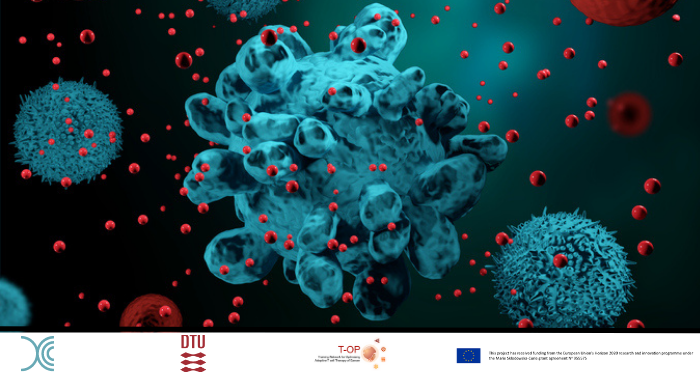
At DTU in Lyngby, a conference focused on the many opportunities for both researchers and clinicians interested in CAR T will be held from June 6-7, 2023. Photo: Canva
28-03-2023
The immunotherapy technology CAR T can rightly be called a game changer because it can help some of the patients who would otherwise have no further treatment options. In the future, CAR T could become relevant for even more patient groups, including those with solid tumors. But this requires Danish research and development now – and therefore it is necessary for researchers and clinicians in the field to collaborate more across disciplines. This way CAR T can benefit as many as possible.
Cancer immunotherapy is often considered one of the most promising forms of treatment for the future. The therapy is being approved for more and more cancer types internationally. With these new treatment options, it appears that far more patients, even those with advanced disease, can become long-term survivors.
But even though the technology has reached danish hospitals, there is still a huge untapped potential. That is the assessment of Sine Reker Hadrup. She is professor at the Technical University of Denmark, where she leads the department of experimental and translational immunology. The researcher is particularly interested in treatments with chimeric antigen receptor T cells (CAR T), where the patient's own T cells are optimized to better attack the cancer.
- CAR T is particularly interesting right now because it is already an approved treatment for certain hematological cancers – so we know it can make a difference for patients. But at the same time, we also know that CAR T technology can be developed so that it potentialy can be used for even more cancer patients, including those with solid tumors. In this way, far more patients could benefit from CAR T in the future – and that is the springboard that I feel we are standing on right now.
The prospects are promising.
And the assessment – that immunotherapy, and particularly CAR T, can become an even more widely used technology in cancer treatment in Denmark in the coming years - is supported by her colleague, Özcan Met, senior researcher and head of the Cell Therapy Unit at the National Center for Cancer Immunotherapy at Herlev and Gentofte Hospital.
- CAR T is based on a technology that, in my opinion, has broad application possibilities. In general, what can be done with modified T cells, and other modified immune cells for that matter, can help severly ill patients who often have no other options left. The prospects are therefore promising, and the tools have become much more refined in recent years. It opens up the potential. I am very optimistic, he says.
Therefore, Özcan Met and Sine Reker Hadrup, together with Per Thor Straten, a professor at the University of Copenhagen, and Maria Ormhøj, a postdoc at DTU, have been part of the organizing committee for 'CAR T cell therapy and advances in cellular engineering', which will be held at DTU in Lyngby on June 6-7, 2023. The conference will focus on the many opportunities for both researchers and clinicians interested in CAR T.
Exciting speakers
The program includes talks by some of the biggest international pioneers in the field, including Carl June, Michel Sadelain, and Stanley Riddell. So the conference will be of a quality that is rarely seen - even internationally. This makes Sine Reker Hadrup proud.
- It is hugely motivating that we have been able to get some of the biggest and best researchers and clinicians in the field to come. It is also important because Denmark is a small country, and if we want to help develop this complex field, we need to stand together internationally, she says, backed up by Özcan Met.
- The cream of the crop, both nationally and internationally, will be giving talks at this symposium. We will be presented with knowledge and data that is state of the art and cutting edge. So I hope that we will excite the audience and use this as a stepping stone to start more research at home, he says.
Both researchers also point out that an important part of the program is to bring national researchers and clinicians together so that they can collaborate across the country as well as across diseases and methods. For both research and treatment with CAR T, a multidisciplinary setup is required.
Both researchers also point out that an important part of the program is to bring national researchers and clinicians together so that they can collaborate across the country as well as across diseases and methods. For both research and treatment with CAR T, a multidisciplinary setup is required.
- Therefore, we hope that with this symposium we can boost the good things that are already underway, as well as spark new ideas - and overall ensure that the best treatments reach the patients as quickly as possible, concludes Sine Reker Hadrup.
The symposium 'CAR T cell therapy and advances in cellular engineering' is hosted by the Training Network for Optimizing Adoptive T cell Therapy of Cancer (T-OP), the Danish CAR T cell Network (DCTN), and the Technical University of Denmark (DTU) in collaboration with DCCC. Read the program and register for free via this link
